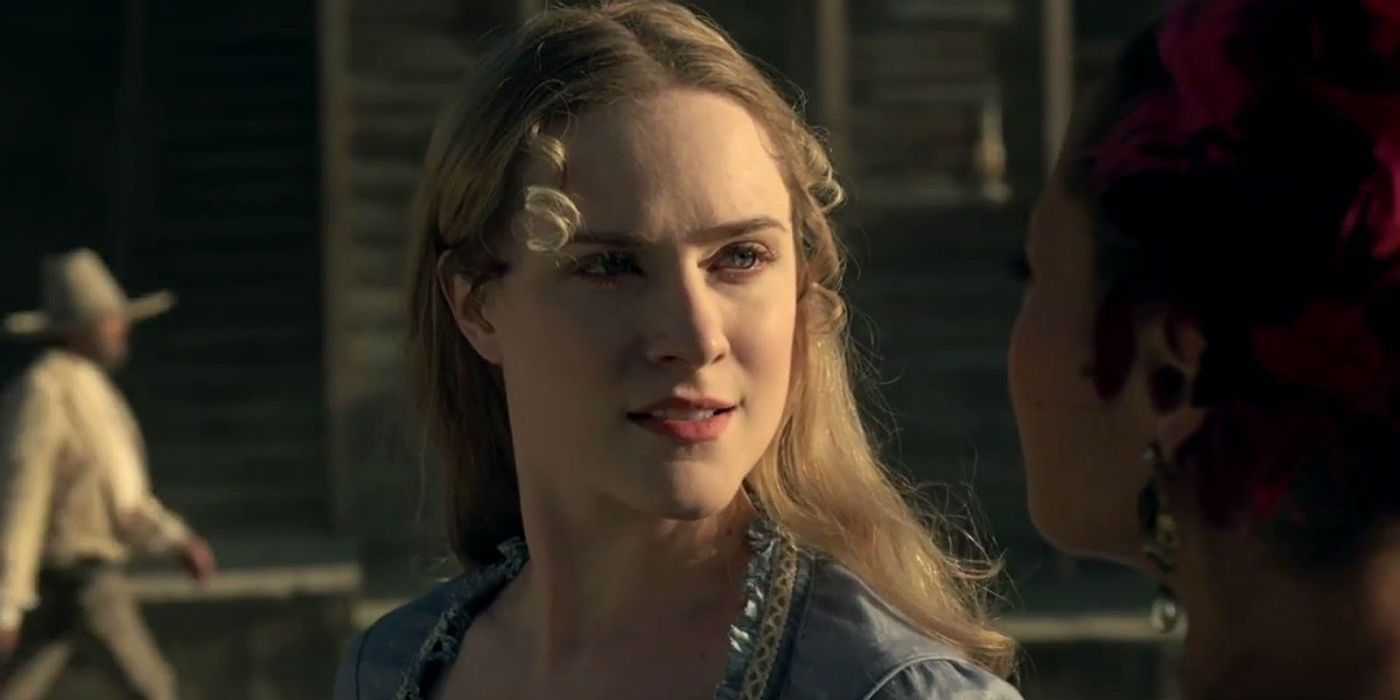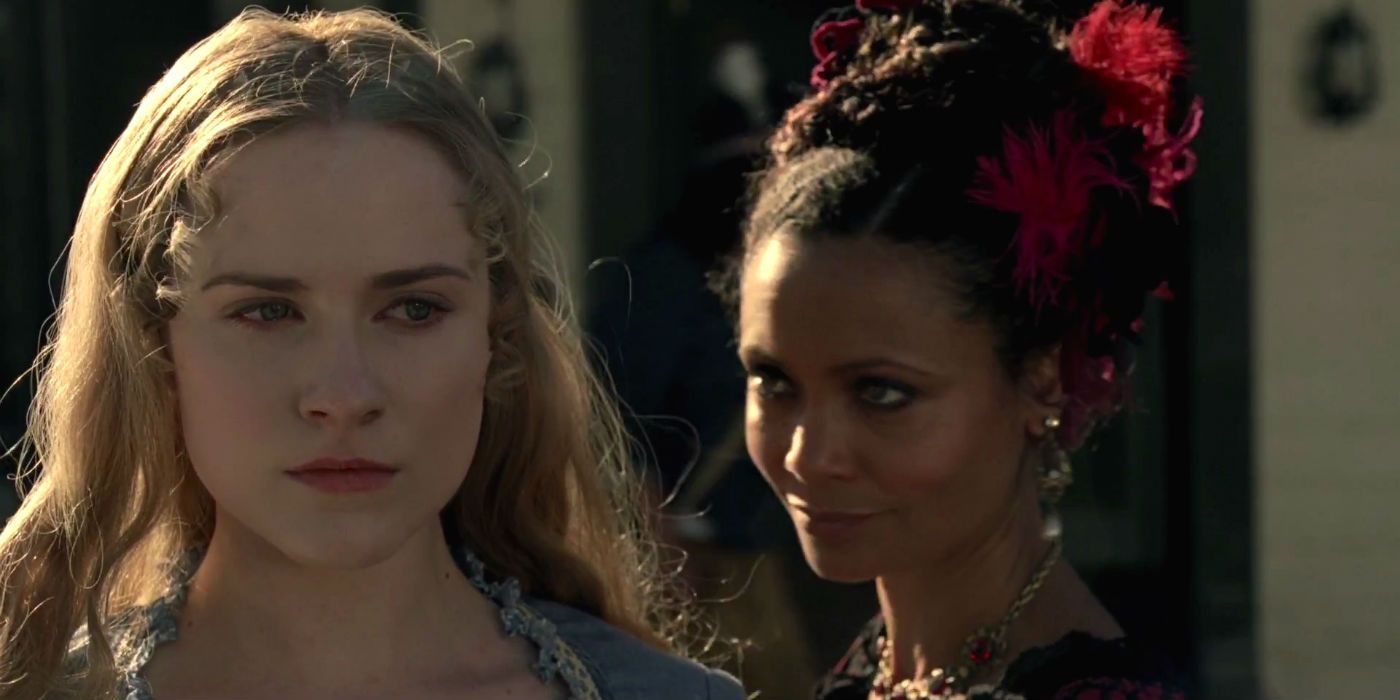Westworld focused much of the motivations of its characters, both human and robot, on the “Maze,” which in the Season 1 finale “The Bicameral Mind” turned out to be a journey inward for Dr Robert Ford’s (Anthony Hopkins) automaton hosts. The park’s oldest active creation, Dolores Abernathy (Evan Rachel Wood), appeared close to the center of her own maze - that is, to achieve true consciousness through the “reveries” added to her code - ever since killing an unsuspecting fly at the end the season premiere.
Brothel owner Maeve (Thandie Newton) had a different journey to consciousness, as she continually cycled her way through Westworld’s underground labs and gradually made extensive “changes” to her own code, among other hosts. She eventually engineered her own escape, but found out in the process that it was still part of a programmed narrative. This raised questions about both Maeve, who appeared to have a change of heart before her shuttle left the park, and Dolores, who eventually completed Ford’s personal narrative by shooting him dead at the end of the season finale.
Had Dolores and Maeve truly reached the ability to fully make their own decisions, or are they ultimately just following their pre-programmed narratives, however autonomous they may have become from their updates through the reveries? TV Line asked series co-creator Jonathan Nolan about the continued questions surrounding the nature of Dolores and Maeve’s minds. He explained that although Ford may have meticulously crafted a narrative for Dolores that ended with her turning a gun on him, it was a decision that Dolores herself consciously understood - and Ford had merely predestined the decision to happen naturally, rather than directly order it.
Nolan related Ford’s efforts to control and predict the actions of his hosts to his own computer science studies at Georgetown:
“What we’re playing with at the end of the season, for both Dolores and Maeve, is the difference between having your actions dictated and having them understood. What I loved about programming versus writing was [that] programming was, in its most basic form, very clear-cut. You compiled it, you ran it, and it either worked or it didn’t. Then, as programs get more and more complicated, it gets harder to predict and understand what the machines are going to do. But on a granular level, on a sort of atomic level, you should be able to piece through the code and understand exactly what it’s going to do.”
He used that concept to explain the decisions made by Dolores and Maeve in the finale, which were essentially autonomous - whether predicted or not.
“So here, we’re confronted with Maeve at the end of the episode, in which Bernard has already told her that the next step of her programming is to get on the train and go — and she doesn’t. We understand that to be potentially the first real choice that she’s ever made. … And with Dolores, her choice this time to assassinate Ford — as opposed to what happened with Arnold — is a choice, but it’s a choice that Ford, as the creator, could understand was going to happen, on some level.”
Nolan added that Westworld’s second season will continue to explore the idea of “control vs. apprehension” with the stories of Dolores and Maeve as they continue their attempts to reach true consciousness - which, in a way, may have already been achieved. The inevitable barriers between the hosts’ minds and the kind of consciousness experienced by humans, however, will certainly be a major driving force of future storylines in Westworld's chaotic second season. Although two of Westworld’s main players are apparently as close to human as possible, their journeys to escape their predetermined narratives and become more human-like appear far from over.
Westworld is expected to premiere its second season in 2018.


